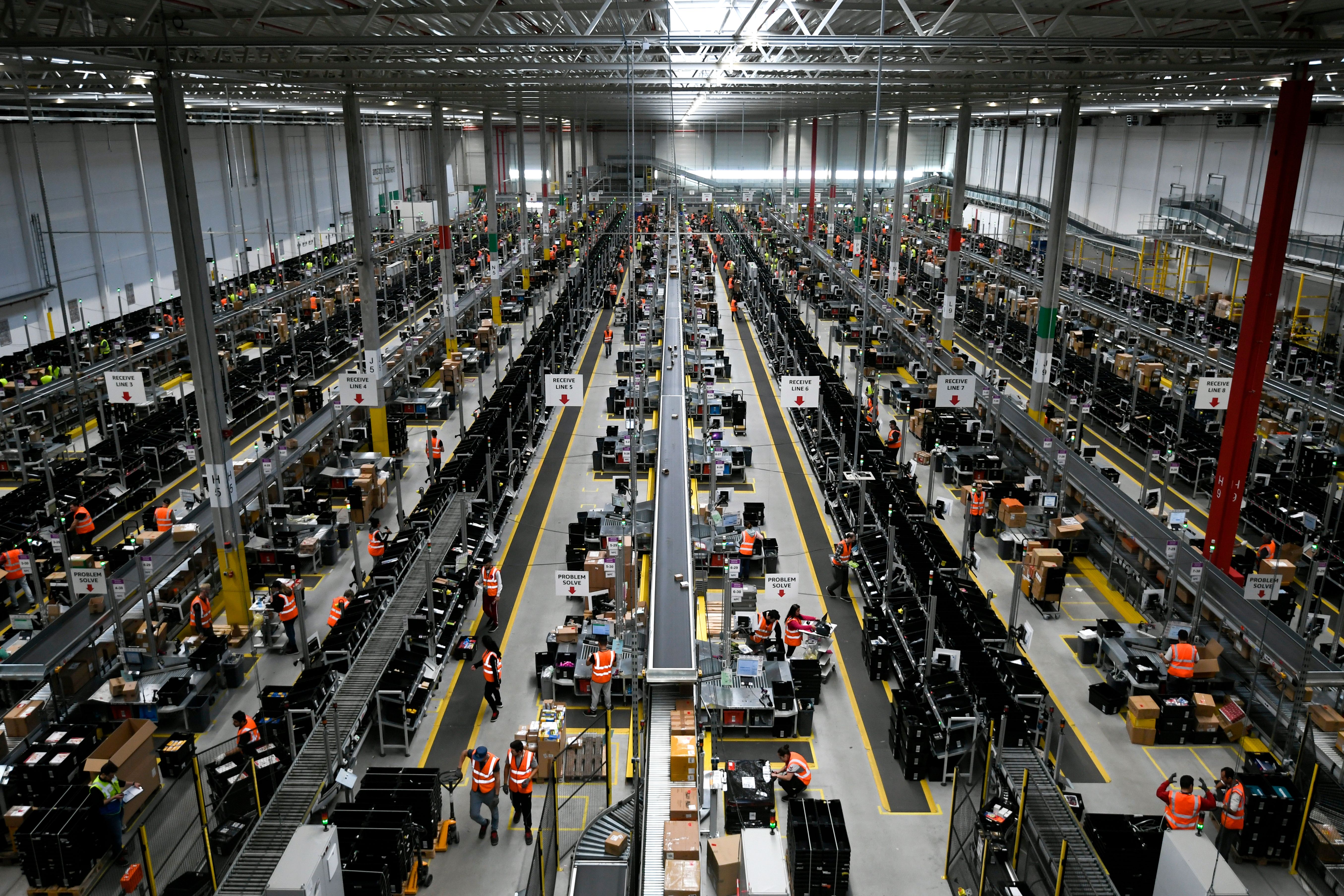Are Amazon sellers getting a devil's bargain?
Is the online retail giant taking advantage of its merchants?

A free daily email with the biggest news stories of the day – and the best features from TheWeek.com
You are now subscribed
Your newsletter sign-up was successful
The smartest insight and analysis, from all perspectives, rounded up from around the web:
Amazon has been running an "Accelerator" program to help smaller sellers build brands, said Jon Emont at The Wall Street Journal — with one very big catch. Amazon, in contracts revealed this week by the Journal, gets "the right to purchase a merchant's brand at any time for a fixed price, often $10,000." Much of what's sold on Amazon.com actually comes from "third-party sellers," independent businesses that market everything from phone chargers to dish soap through Amazon's site and warehouses. Those businesses compete furiously with one another for visibility. Sellers that sign on to the Accelerator get "marketing support, product reviews, and prominent display," but if a merchant's brand is successful, Amazon can buy it with just 60 days' notice. The original owner remains Amazon's exclusive supplier for two years after the acquisition. Merchants complain that Amazon is making them choose between holding on to their brand or securing the attention that Amazon offers favored sellers. Says one, "It's a pseudo-partnership that's completely one-sided."
Buyers may love Amazon, but it "doesn't have a shining reputation" among sellers, said Rachel England at Engadget. These contract terms are only one of merchants' many problems with the retail giant. Companies often report having their goods counterfeited by other firms and being "kicked off the site for no obvious reasons." Prompted by a German antitrust investigation, Amazon last week agreed to change some of its terms worldwide, letting merchants appeal charges and giving them an explanation when their accounts are suspended. That's not going to be enough for regulators in Europe, or for lawmakers in the U.S., said Alison Durkee at Vanity Fair. Amazon is now facing a full-blown European Union antitrust investigation over allegations that it is "using data from third-party sellers" on its site "to create its own similar, competing merchandise." U.S. lawmakers have raised similar concerns. At House hearings last week, Amazon insisted it doesn't use data harvested from its marketplace to compete with individual sellers, but lawmakers appeared unconvinced. "You collect all this data about the most popular products," said Rep. David Cicilline (D-R.I.), "and you don't use that in any way to change an algorithm to support the sale of Amazon-branded products?"
The Week
Escape your echo chamber. Get the facts behind the news, plus analysis from multiple perspectives.

Sign up for The Week's Free Newsletters
From our morning news briefing to a weekly Good News Newsletter, get the best of The Week delivered directly to your inbox.
From our morning news briefing to a weekly Good News Newsletter, get the best of The Week delivered directly to your inbox.
Sure, Amazon watches out for its own interests, said Dan Gallagher at The Wall Street Journal, but lawmakers "don't seem to understand where the company's true self-interest lies." Critics think it's obvious that Amazon would use data from its marketplace to compete with sellers. They seem to believe that Amazon's business model is "to take all that action for itself." It's not. On the contrary: Amazon's profit margins on sales from third-party sellers, who carry much of the cost and the risk of stocking products, are far greater than the margins from its own retail transactions. Wall Street expects Amazon's sales to double in the next five years to nearly $500 billion and its margins to keep getting better. Amazon can't get there by taking over small businesses; the only way it can achieve that goal is by bringing a lot of sellers into its marketplace — and making sure they sell a lot of stuff.
A free daily email with the biggest news stories of the day – and the best features from TheWeek.com
-
 How the FCC’s ‘equal time’ rule works
How the FCC’s ‘equal time’ rule worksIn the Spotlight The law is at the heart of the Colbert-CBS conflict
-
 What is the endgame in the DHS shutdown?
What is the endgame in the DHS shutdown?Today’s Big Question Democrats want to rein in ICE’s immigration crackdown
-
 ‘Poor time management isn’t just an inconvenience’
‘Poor time management isn’t just an inconvenience’Instant Opinion Opinion, comment and editorials of the day
-
 The pros and cons of noncompete agreements
The pros and cons of noncompete agreementsThe Explainer The FTC wants to ban companies from binding their employees with noncompete agreements. Who would this benefit, and who would it hurt?
-
 What experts are saying about the economy's surprise contraction
What experts are saying about the economy's surprise contractionThe Explainer The sharpest opinions on the debate from around the web
-
 The death of cities was greatly exaggerated
The death of cities was greatly exaggeratedThe Explainer Why the pandemic predictions about urban flight were wrong
-
 The housing crisis is here
The housing crisis is hereThe Explainer As the pandemic takes its toll, renters face eviction even as buyers are bidding higher
-
 How to be an ally to marginalized coworkers
How to be an ally to marginalized coworkersThe Explainer Show up for your colleagues by showing that you see them and their struggles
-
 What the stock market knows
What the stock market knowsThe Explainer Publicly traded companies are going to wallop small businesses
-
 Can the government save small businesses?
Can the government save small businesses?The Explainer Many are fighting for a fair share of the coronavirus rescue package
-
 How the oil crash could turn into a much bigger economic shock
How the oil crash could turn into a much bigger economic shockThe Explainer This could be a huge problem for the entire economy